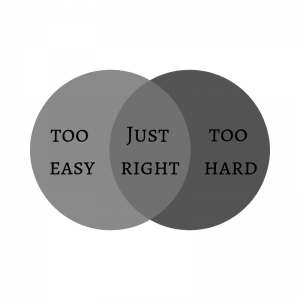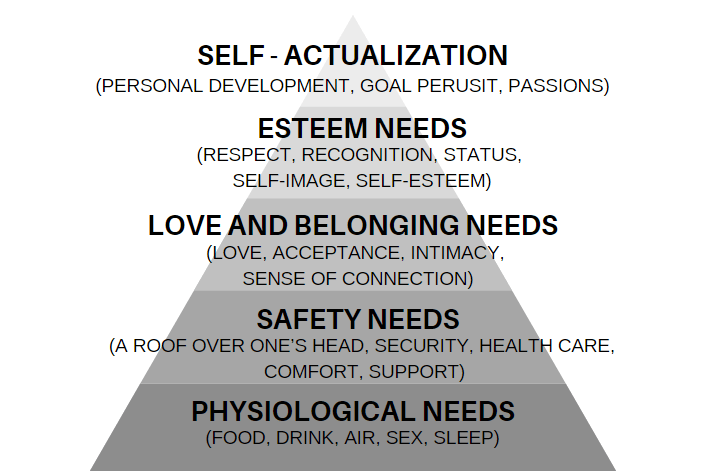How to be motivated
Motivation is, without question, one of the most desired psychophysical states for the modern society. In the thicket of empty advice, we need a mature and research-based view on motivation. In this article you will learn 8 surefire ways of developing natural inner motivation.

Motivation like a drug
Have you ever watched a motivational video on Youtube? One that would convince you that sky is the limit and that you can do absolutely anything? Or maybe you've even been on a motivational training yourself?
Go back to that moment and remember how you felt:
- What was the effect of the energy you managed to stir up in yourself?
- What exactly did you do thanks to that energy?
- For how long has this feeling stayed with you?
Be honest with yourself.
Certainly, we can benefit from such an energy boost. However, as far as I’m concerned, this is not motivation in the true sense of the word but rather an emotional "kick", which doesn’t deserve much attention due to its short-term nature. How to be motivated in the long term? Motivation is a state of mind, a supply of life energy that doesn’t have to be replenished all the time.

I once believed that motivation must be constantly stimulated. At one point, I got tired of it. I had the impression that, in a way, I forced myself to be ready to action by injecting myself a dose of that pleasant drug, which allowed me to be on a roll for a few hours and do everything I expected myself to do.
As soon as the drug stopped working, the mental hangover would come in. The guilt was eating me up inside again for the lack of willingness in my goal pursuit. I found it difficult to accept the thought that I would probably have to put that much effort into motivating myself to action all my life. To answer the question "how to be motivated" is important to understand that the more often I took this motivational drug, the less it worked.
Today, I no longer need to stimulate my willingness to act in any way. I’ve come to the conclusion that the vast majority of my motivation issues result from not understanding what motivation really is about and how it works. Even though we try to motivate ourselves using various ways, we only manage to reduce the symptoms of our general aversion to life, instead of dealing with the underlying issues.
In this article, we will look at the phenomenon of motivation from a slightly different angle and we will get to the bottom of it. You will learn 3 key motivational factors and 8 ways which will help you understand how to be motivated on a daily basis.
Let's start with what motivation is all about.
Different types of motivation
Motivation is an internal, psychophysical state of action readiness.
This state of readiness applies to all our activities. Motivation can, therefore, take various forms. It is not just a feeling of inner willingness to make your life better and to pursue your goals.
In fact, every emotion we feel is a form of motivation. Emotions (from the Latin “e movere”, i.e. "in motion") assign meaning to certain events in our life and give a stimulus for taking certain actions. For example, the role of sadness is to motivate us to retreat and find solitude so that we can express our feelings (e.g. through crying) and think about the things that are important to us. The purpose of fear is to motivate us to take the steps that will ensure our safety.
In conclusion, emotions urge us to satisfy our psychological needs. These are the motivators which move our behaviour.
"How to be motivated?" The question rahter is, what emotions drive your actions? In other words, why do you do what you do? Are you motivated by fear, longing, desire, guilt, or maybe joy from what you do? For different people motivation can mean a desire to realize the colourful vision that they have kept long in their mind, or the encouraging voice of the father who wants to be proud of his child, or the fear of living a boring and unsatisfying life.

Motivation is a very broad concept and it is good to understand how it works in our individual case. When we lump all motivational states together, we don’t let ourselves see what motivates us and why.
Now, take a moment to reflect on the following questions:
- How am I experiencing the state of motivation?
- What emotions motivate me the most?
- What kind of motivation is best for my effective action?
- Which type of motivation do I need less in my life, and which do I need more?
3 key motivational factors
Motivation can be extrinsic and intrinsic. The intrinsic one comes from within yourself as a result of unmet needs, while the extrinsic one results from social norms and systems of punishment and reward. I am not going to elaborate on the latter here because, as proved by numerous studies, it is simply not very effective.
The intrinsic motivation is influenced by a great number of elements, but only some of them can be considered as key factors. Daniel Pink, in his book Drive, lists the three most important elements of the motivation formula:
1. Autonomy, or the desire to manage your own life.
2. Mastery, or the desire for continuous development in something that is important to you.
3. Purpose, or the desire to connect to the cause greater than yourself.
Below I elaborate on each of these ingredients and suggest simple and practical solutions that will allow you to work on your motivation.
Factor 1: Autonomy
Autonomy is our natural tendency to be self-governed. This is our self-given right to freedom and independence.
Autonomy is a point in your life where you know that you are entirely independent in managing your actions. You have the freedom to live the way you want, so you can adequately respond to your needs and desires. You don’t do anything because someone else told you so or decided it would be good for you. It is you who knows what’s best for you, and if you don’t know it yet, you will eventually find out, through trial and error.
Motivation doesn’t work under conditions of pressure and coercion, which is why autonomy is crucial. The more free you feel and the more control you have over your life, the more motivated you will be.
So, what can you do to have more autonomy in life?
1. Free yourself from the dictatorship of "I must" and " I should". We live in a world of social duties, norms, rules and regulations, mandates and prohibitions. Just as if we were bound by hundreds of ropes that limit our movements. Of course, these knots exist only in our heads, and to unbind them we need to understand that there is nothing that we really have to do. And even if we think we have to do this or that, it's only because we're not aware whether we want to do it and why. For example, "I must pass this exam" very often, at a deeper level, means "I want to study at this university, and unless I pass that exam, I will be expelled".
You regain your freedom when you understand that everything you do in life depends on your own personal choice. If you allow yourself to be directed by others, that’s also your choice. After all, it is you who decides to give other people control of your life.
It’s good to be aware of how the use of expressions "I must", "I should" and "I want" influences our nervous system. Close your eyes and say a few sentences with your inner voice. Each of them should be said twice: once starting with "I must" and once with "I want". For example: "I must clean up the room," "I want to clean up the room." Pay attention to the difference in your emotional reaction between these two kinds of internal communication.

2. Act in accordance with your needs. If you are trying to stir yourself into something that doesn’t respond to your natural needs, it will mean forcing yourself into this. Unfortunately, living in modern society, we are to face a lot of unrealistic, forced expectations. Be beautiful, be perfectly healthy, be successful, be happy, find your passion, find the love of your life, build a family, do sports and stay fit. When we get overwhelmed by so many demands, our life energy burns out.
Live in harmony with yourself. Remove all the unnecessary noise. Do what you feel you really want to do. Put the rest aside. If your life is the life you want and you feel good about it, your motivation will become your natural state of being. I wrote more on this topic in the article Motivation is a choice.
3. Make room for more freedom at work. Talk to your boss and convince him/her to give you more power over making decisions on the way you pursue your goals. Tell him/her that you want to be more goal-oriented and that offering you autonomy support and giving you more choice over how to to do things will mean more space for your creativity and will boost your motivation. If he/she is not convinced, ask him/her for a trial month. Or even a week. It is important that you show with your work that, when given more freedom, you get better results. It’s not going to be possible in every profession and with every boss, but it is definitely worth trying.
Factor 2: Mastery
Mastery is the result of the satisfaction from becoming better at something. When we feel that we are making real and visible progress, our motivation increases.
The key aspect here is to excel at what is important to us. Regardless of whether it is chess, project management or gardening, as long as you feel that something is near and dear to your heart, you will want to constantly develop your skills. What can you do to use the effect of mastery in enhancing your motivation?
4. Find that “just right” level of challenges. If the goals you set for yourself are too easy, you won’t feel excited about pursuing them (excitement is an inseparable part of motivation and by some psychological theories it is even considered its synonym). If they are too difficult, you may lack self-confidence and feel paralyzed by fear of failure, so your motivation will also be low.
Cognitive psychology introduced the so called Goldilocks principle, which refers to an infant's preference to attend to tasks which are neither too simple nor too complex according to their current representation of the world. So, it’s good to set goals and take on challenges that are at a level just beyond your current abilities and, therefore, enable you to achieve the flow state without feeling too much fear or anxiety.

5. Discover what represents value to you. And I don’t mean find your passion, because there is no such thing as a single passion for each individual. There are many things that you can get hooked on. If you can’t find such things in your life, then you might need to focus on mental and emotional barriers that hold you back from being curious about the world.
Small children don’t need to look for their passion. They simply try everything because everything seems interesting to them. If you want to find out what gets you out of the bed in the morning be like little children because discovering what makes your heart beat faster requires a lot of exploring and experimenting. Take your time. Don’t expect from yourself to know right away what you want to invest your free time in. If you are engaged in a task or activity you don’t care about that much, be sure to look for a new hobby or passion.
6. Be good to yourself when it comes to satisfying your needs. According to the Maslov's hierarchy of needs, when our basic needs (e.g. physiological, safety and belongingness) are fulfilled, our psyche will naturally seek to meet the needs from the next (higher) level of the pyramid.
This is because every deficit need requires total attention of our mind. First of all, we need to feel safe; next, we need to have self-acceptance and to feel part of a group; then, we can focus on our need for self-fulfillment (which includes, for example, personal development). Unless we learn to take care of these basic needs, we won’t create the mental space or have the energy to take on new challenges.
Take a look at Maslov's pyramid and think about which levels of needs you can take care of best right now. Then select those areas that you might want to focus on in the near future. Of course, our needs cannot be satisfied once and for all. It requires the ability to maintain a constant balance in life. That is why, cultivating habits that allow you to meet all your most important needs is very helpful here.

Maslow's hierarchy of needs
Factor 3: Purpose
From the point of view of evolutionary psychology, helping other people is an inherent need of every human being. We are programmed to increase, by living and working in our environment, the community’s - and thus the species’ - chances of surviving.
So, what happens when we find that among our aspirations there are goals "greater than ourselves" - those that don’t concern only our lives? We start to gain a deep sense of meaning, which is the foundation for learning in higher levels of motivation.
Let's assume that you work day-to-day for a company selling junk food, which has a destructive impact on the health of hundreds of thousands of people. If you are aware of this damaging influence, it will probably be difficult for you to have passion and motivation towards your job.
If, however, you work in a company that contributes to solving actual social problems (e.g. providing organic food or creating technological solutions for people with disabilities), you will be highly motivated by the sense of meaning and by the significance of your work.

What can you do to live with a sense of meaning?
7. Do what is important for someone else but you. Think about the most burning issues in your community, in your city, in your country and in the world. Whether it concerns health care problems, or lack of exercise, or psychological problems, or poor access to education, there are dozens of industries, professions and companies that focus on solving these and many other social problems. Regardless of what character your job might have, being part of something greater than ourselves is what motivates us the most.
8. Get involved in the activities of a non-profit organization. Motivation doesn’t have to apply only to your work. What you do after hours is also very important. If you like your work and don’t want to change it, but still don’t get that deep sense of meaning out of it, you can find that elsewhere. There are plenty of such organizations. You don’t have to devote more time to such help than you can afford - every kind of support is useful in places like that. Early this year, I myself founded The Foundation for Conscious Education, which gives me a deep sense of meaning.
How to be motivated
I notoriously listen to people ask: "How can I make myself willing?" This is a wrong question in the first place. You cannot make yourself willing. That would be tantamount to forcing yourself into something.
Motivation is like a flower that thrives when it has the conditions to thrive. Your role is not to force the flower to bloom but to ensure the right conditions for its growth - so that it can thrive in a natural way.
Therefore, we shouldn’t work on the motivation itself, don't search answers for "How to be motivated" question, but we should focus on ensuring the conditions that will allow us to cultivate it. Some of these conditions are internal (limiting beliefs, old mental habits, destructive emotions), while others - external (our workplace, our neighbourhood, our schedule).
Each of these areas may consist of elements that block your natural life energy. You need to identify these blockages, understand them, and then work on them, regardless of whether you do it on your own or with the guidance of a therapist or a coach. I hope that the eight tips I described in this article will help you tap into the source of your intrinsic motivation.
Write in the comments below how you are motivated and which of the ways listed here you are going to put in practice. We learn best from other people, so be sure to share your thoughts and experiences with other readers.
